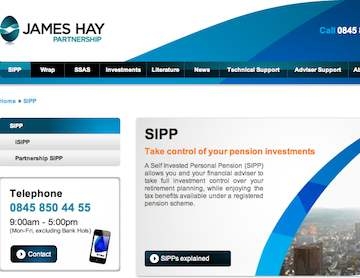James Hay Partnership, the platform for retirement wealth planning, is calling on HMRC to create a Pensions Nil Rate Band (PNRB).
Responding to HMRC's consultation document "Inheritance Tax: A fairer way of calculating trust charges" which proposes introducing a new Settlement Nil Rate Band (SNRB), the platform has requested that a Pension Nil Rate Band is introduced and that relevant property trusts holding death benefits from pension schemes created after 6 June 2014 should be exempt from the SNRB rules.
The new PNRB would work in a similar way to the proposed SNRB, and would be available for allocation between all death benefits held on relevant property trusts, regardless of the date of creation of the trust based pension scheme. The member's death would be the date of settlement for calculating periodic and exit charges, meaning that there would no longer be any requirement to take into account a member's pattern of chargeable gifts in the seven years before a member commenced each pension arrangement.
{desktop}{/desktop}{mobile}{/mobile}
While the platform welcomes the proposals to simplify the inheritance tax regime for trusts and supports proposals aimed at levelling the playing field on IHT planning it is concerned the introduction of the new settlement nil rate band will unintentionally catch prudent pension planning, as well as creating a new inheritance tax trap for those who switch pension providers after 6 June 2014, either through choice or necessity, and who make further pension contributions to the new provider.Neil MacGillivray, head of Technical Support Unit at James Hay Partnership, said: "We do not believe that this was intended and are concerned that the new tax treatment could unfairly distort competition within the pensions market in favour of existing pension arrangements.
That is why we propose the creation of a PNRB as it would provide a fair balance between simplifying complex tax calculations and equalising the inheritance tax treatment of all death benefits, regardless of the date that an individual member started making pension contributions."

